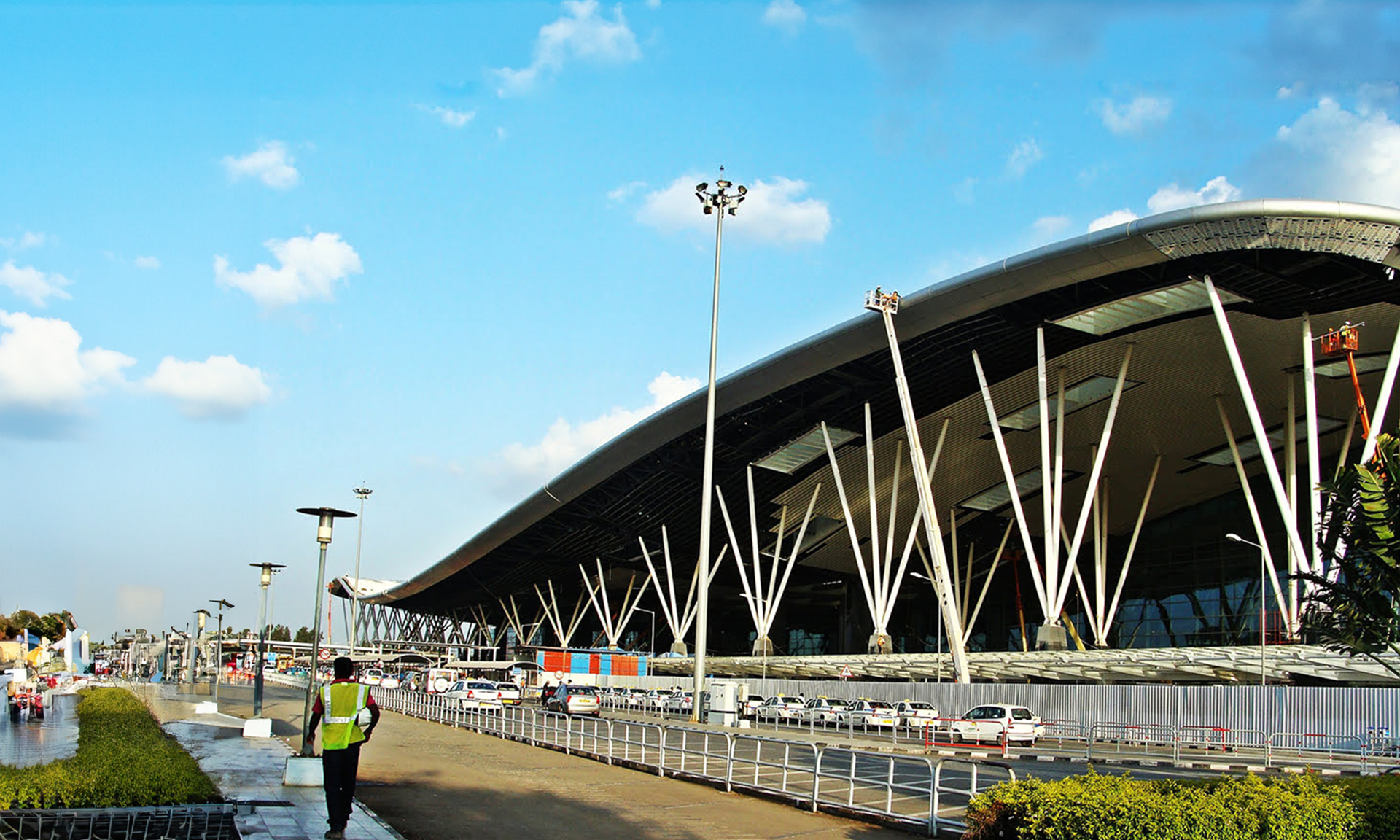
- Newsletter, U.A.E
- August 10, 2021
The UAE is known as the leading financial hub in the Middle East and North Africa Region and many foreign companies look for setting up businesses in the country. It is, however, necessary that they prioritise the need to protect the company’s trademark with full consideration whether the trademark infringes the rights of others before registering the new corporation.
The Government of the UAE has put bold steps forward for implementing sound trademark legislation in line with international trademark registration classifying goods and services for the Registration of Marks under the Nice Agreement. The federal law for trademarks focuses on protecting trademarks and the procedures for the protection of intellectual property rights. Trademarks are effectively protected by Federal Trademark Law No. 37 of 1992 subsequently amended by Federal Law No. 8 of 2002 called the ‘Trademark Law’ with the requirements for trademark registration in Dubai UAE and the penalties for violating the same.
Rights of trademarks are permitted to both the UAE nationals and foreigners performing commercial, industrial, services and other business-related activities.
UAE Federal Law No.37 of 1992 defines a trademark as “a trademark is any distinguished form of names, words, signatures, letters, figures, graphics, logos, titles, hallmarks, seals, pictures, patterns, announcements, packs or any other marks or group of marks, if they were used or intended to be used either to distinguish goods, products or services from whatever sources, or to indicate that certain services, goods or products belong to the owner of the trademark, because of their provision, manufacturing, selection of trading. The voice accompanying a trademark is considered a part of it.” In a nutshell, it is the ‘Brand Name ‘ in legal terms.
Though Trademark registration is not mandatory in UAE, it can benefit foreign businesses by providing exclusive rights to beneficially operate under the registered trademark. It also protects the company name and brand from any infringement and allows legal actions whenever such a case arises. Besides, a trademark also helps in promoting business through
- Unique Image creation
- Easy Manpower deployment with minimum attrition
- Creating an intangible asset
- Product quality recognition
- Enhancement of goodwill and trust
What is the Trademark Authority in the UAE?
How does a Foreign Company register for a Trademark?
What Is the Scope of Trademark Registration in the UAE?
As per Article 2 of UAE Trademark Law, any character with a distinctive form that helps to distinguish a brand from others can be trademarked such as titles, characters, seals, posters, engravings, paintings, names, signatures, titles, paintings, and any kind of label.
Article 3 of Federal Law No. 37 of 1992, prohibits certain marks from trademark registration on absolute or relative grounds and a few of them are listed below.
- Marks with no distinctive character
- Descriptive marks, ordinary drawings and pictures of products
- Marks breaching public morals or interest
- Public emblems, flags and other logos
- Trademarks that are identical or similar to symbols having a purely religious character
- Geographical names that may create confusion regarding the origin of products or services
- Particulars of honorary degrees
- Trademarks owned by prohibited natural persons or legal entities
- Trademarks composed of national and foreign medals, coins and banknotes
- Red Cross and Red Crescent symbols
- Third-party names and titles
- Other well-known trademarks translated directly
What is the process of Trademark Registration in the UAE?
Trademark Registration Process in the UAE is simple with the below-mentioned steps
- Filing Application
- Examining on formal, absolute and relative grounds
- Publishing for opposition purposes in national newspapers
- Approval for Trademark Registration
- Payment of fees, rolling penalty fees for late payment
- Final Registration of Trademark
- Issuance of electronic registration certificate, no hard copy certificate is issued
What is the validity of a Trademark in the UAE?
What is the Trademark Registration Fee in the UAE?
How is Trademark Renewed in the UAE?
What are Trademark Infringements and what are the penalties?
Trademark infringement can be a major problem in the UAE as in other countries with serious business implications. A business must have a good title to its trademark to ward off any possible risk of infringement.
Various legal actions can be initiated against the infringers and may even lead to criminal proceedings. The trademark holder may even commence civil proceedings for infringing the use of the trademark. The best way to prevent a third party from infringing business rights is trademark registration with the UAE government enabling the enforcement authority to assess trademark rights for most effective countermeasures.
Besides criminal proceedings and imprisonment for infringement of trademarks, hefty fines are also imposed by the authorities. Dubai Customs can also facilitate avoiding infringement with its authority to stop infringing products before entering the UAE soil and can make trademark protection more robust and secure.
Takeaway
There may be an additional cost to hire local PRO services as an attorney for trademark registration, however, partnering with an experienced attorney allows new business owners to focus on other value-added tasks including business development, marketing strategies, advertising etc. instead of getting involved in intricacies of trademark law and submitting applications. A reputed firm ensures that the registration process is successful without getting rejected with complete search and intricate legal analysis.
It is highly recommended that businesses invest in a trademark lawyer and draw up and implement a plan for operating in the UAE, particularly about how trademark rights are handled for a sustainable business with trust and goodwill. A reputed firm also keeps a constant watch and strenuously protects against any infringement of registered trademarks in the UAE.

- Article, U.A.E
- August 4, 2021
Overview
Dubai is a geographically strategic location as the confluence of the East and West and enhances business growth beyond all borders. It is the gateway to the rich oil economies and an obvious choice for international investors and entrepreneurs.
Dubai Government has embarked upon its relentless effort to transform the city into an enviable global logistics hub supported by solid aviation and supply chain networks. Dubai also implements an agile and business-friendly regulatory environment.
The city is supported by a solid and stable economy and forward-looking policies, planned development and infrastructure initiatives. A metropolitan city and home to more than 3 million expats from many countries across the globe, Dubai promotes technology and innovation in all spheres of life consistently outperforming many other international cities in global indicators e.g. prosperity, happiness and living standard.
The city enjoys world-class infrastructure facilities and transportation networks including high-quality communication systems. It is very well connected with all leading economies in the world through air and sea.
Business set up in Dubai Free Zone is ideal for start-ups because of a host of factors such as e-governance and other support services, and easy fundraising potential.
What are Free Zones?
Free Zones are special economic zones that offer customs duty benefits and tax concessions to investors and they are each governed by a special framework of rules and regulations. They are designed to encourage foreign investment with 100% ownership for all nationalities along with easier start-up processes, labour and immigration procedures, and other legal services.
How many Free Zones are there in Dubai?
There are more than 30 Free Zones operating in Dubai out of which 19 are participating Free Zones and most of them cater to specific sectors, providing industry-specific licenses trading, industrial activities and different types of services.
The city is surrounded by these Free Zones that accommodate all businesses, from startups to SMEs to large multinationals. All businesses activities are benefitted from well developed logistics and supply-chain networks.
The major Dubai Free Zones are
- Dubai Silicon Oasis
- Dubai Airport Free Zone
- Dubai Design District
- Dubai Healthcare City
- Dubai International Academic City
- Dubai Internet City
- Dubai International Financial Centre
- Dubai Knowledge Village
- Dubai Media City
- Dubai Gold and Diamond Park
- Dubai Multi Commodities Centre (DMCC)
- International Media Production Zone
- Jebel Ali Free Zone
- Dubai Production City
- Dubai World Central (Dubai South)
- Dubai Studio City
- Dubai World Trade Centre Free Zone
- Dubai CommerCity
There are some Free Zones that are less costly and more economical for business operations and include
- Dubai Silicon Oasis (DSO) DSO is the mecca of cutting-edge technology and development in Dubai
- Jebel Ali Free Zone (JAFZA)
- Dubai Media City (DMC)
- Dubai Healthcare City (DHC)
- Sharjah Media City (SHAMS)
Are all the Free Zones suitable for all types of businesses?
Before you go for a Free Zone, you need to carefully ascertain what advantages are offered in that Free Zone for your business. While Jebel Ali Free Zone gives you easy access to air and sea routes most appropriate for shopping business, a DMCC company formation needs to be considered mostly for trading businesses and JAFZA company formation would be best for logistics businesses.
As a regional hub for many sectors including aviation, financial services, logistics, trade, media, tourism, information and communication technology, and healthcare, Dubai offers a host of benefits and cluster effects to companies in those sectors that choose Dubai as a base.
Which free zones suit your business most can be found from this link.
Why should I incorporate my business in Dubai Free Zones?
Dubai is widely known as the Future City and heaven for startups because of its thriving technology and innovation ecosystem and supportive government policies. It is untrue that Dubai is expensive, rather it is one of the most cost-effective choices for setting up a business due to zero tax, no import-export duty including many more cost benefits. With the development of both physical and digital infrastructure including other business amenities, Dubai has started to attract more and more foreign businesses and become home to more than 70% of fortune 500 companies.
There are multiple benefits of setting up your business in Dubai Free Zone and the most notable ones are enumerated as under.
- 100% Foreign Ownership needing no local UAE citizen as a sponsor.
- 100% Repatriation benefits on capital and profits
- No Foreign Exchange regulation and simple and easy transactions
- No Import/Export duty and free global trade
- Straightforward Immigration process including Residence and Employment visas
- Easy and convenient Company Incorporation with simple licensing procedures
- Easy and simple Workforce engagement and conducive employment rules for foreign expats
- Tax-free business environment both for corporates and individuals with 15 years tax exemption renewable for another 15 years
- No mandatory initial capital requirements
- Easy access to huge MENASA market
- Availability of several incubators and accelerators such as DIFC FinTech Hive etc.
- Easy access to funding with 19 Venture Capitalists (the highest in MENA region) as well as P2P and Islamic Funding
- Economic Assistance by Dubai government through 20% Capital project cost allocation to startups and SMEs, 27 million USD through ‘Smartprenuer’ initiative
How can you Set Up a Company in Dubai Freezone?
Registering a foreign company in the Dubai Free Zone is easy but becomes easier when you outsource the services of a reputed and professional service provider based in Dubai to avoid some complexities and impediments experienced from time to time. It typically takes three weeks once you decide on the specific free zone to incorporate your business.
More details of the Dubai Free Zone company formation process can be found in this link.
How can IMC help you in a successful business set-up in the Dubai Free Zone?
We at IMC are a team of highly experienced and qualified professionals with a proven track record of providing high value-added PRO services backed by our global business insight and local knowledge.
We have been operating in Dubai and the UAE for more than a decade and also have our operational bases in many parts of the Middle East and other GCC nations.
We believe in continuous learning and keep ourselves updated and well informed about the rapidly changing business laws and regulations in the UAE and Dubai.
Once you hire us, we shall help you in business-related documentation including translation and attestation, all immigration and licensing formalities, banking and all other legal processes and also assist you in developing a strong and transparent relationship with the authorities for continued business growth and development.

- Article, Singapore
- July 22, 2021
Singapore Employment Act mandates that as an employer in Singapore, you must pay the salary of your employees a minimum once a month and within 7 days once the salary period ends based on the terms and conditions of the employment contract.
Payroll management can be tricky and complex however there are professional, experienced and reliable payroll services in Singapore that can effectively address all your issues related to payroll management including CPF contributions, leave claims, taxes, employee benefits etc. and ensure regulatory compliance of timely salary payments to your employees.
How is salary defined?
Remuneration is commonly known as salary that is paid for work performed as per employment contract and includes allowances except provident fund contribution paid by the employer, travelling allowances, on the job expenses, retirement benefits etc.
What should be the frequency of disbursement of salary?
The Employment Act defines that employers pay the salary every month as a minimum.
For regular work, the salary must be paid within 7 days after the end of the salary period and for overtime, the date of salary payment may be extended up to 14 days maximum.
How can the salary be paid?
Payslips for individual employees must be generated before paying the salary and can be paid on working days at the place of work or any other place mutually agreed between the employer and the employee. Salary can be directly deposited in bank accounts.
What items are mandatory in a payslip?
Every payslip must have a mention of the following items
- Full name of employer.
- Basic salary.
- Date of payment or dates if payment is made more than once.
- Allowances paid for salary period, such as all fixed allowances, e.g. transport. All ad-hoc allowances, e.g. one-off uniform allowance.
- Start and end date of the salary period.
- Total overtime hours worked and payments made.
- Full name of the employee.
- The basic rate of pay.
- Total number of hours or days worked or pieces produced.
- Any other additional payment for each salary period, such as Bonuses, Rest day pay, Public holiday pay.
- Overtime payment dates.
- Net salary paid in total
- Deductions made for each salary period including the mandatory deductions e.g. provident fund contribution and any other deductions e.g. leave of absence.
How long the records of payslips must be retained?
All the payslip records must be retained and maintained for at least two years for all current employees and either in hard or soft forms. Two years’ ex-employee payslips must be retained for a year after the employee leaves the organisation.
What are the mandatory payroll contributions in Singapore?
The Singapore Employment Act stipulates some mandatory contributions to be made by the employers to the employees and are
1. Central Provident Fund (CPF)
In Singapore, both employers and employees must make mandatory contributions in a social security savings scheme known as CPF.
An employer must make CPF contributions at the monthly rates specified in the CPF Act and recover individual employee’s share of the contribution by deducting the same from their salaries.
CPF contributions must be made at the end of every month and failing to pay by the 14th of the next month may attract penalties including late payment interest charges and in cases hefty fines up to SGD 5,000 and even imprisonment or both.
The CPF contribution rate applicable for your employee is determined by the nature of citizenship like Singapore Citizen or Singapore Permanent Resident (SPR) and its status, salary band and total monthly wages. The allocation rates differ from contribution rates and depend on age group and employee type.
CPF contributions are compulsory for the following payments
- Basic salary per month
- Incentives, Allowances and Commissions
- Bonuses paid annually
- NSmen make-up pay
- Payments for overtime
CPF contributions are not payable for gifts and reimbursements.
There are different caps applicable for Ordinary Wage and Additional Wages and CPF contribution is calculated accordingly. The maximum contribution for ordinary wages is calculated at SGD 6,000 at present.
The maximum of additional wage’s contribution towards CPF contribution equals to ordinary wage contribution of SGD 72000 minus SGD 102,000 annually.
Details of CPF contribution and allocation rates applicable for employers can be obtained from this link.
2. Ethnic Fund
An ethnic fund contribution must be made by the employer based on the ethnicity of the employee every month and deposited to the respective welfare funds along with the employee’s contribution.
3. Skill Development Levy
Irrespective of being a full-time, part-time, casual, or foreign employee, employers need to make mandatory contributions towards a skill development levy and its calculation varies depending on the salary of the employee. The first SGD 4,500 of monthly salary attracts a 0.25% levy with SGD 2 as a minimum.
4. Foreign Workers Levy
Employers are required to pay levies if they hire
Employing foreign workers with work permits or S passes attract foreign workers levy based on the qualifications of employees and the sector-specific business activities of the employers.
What deductions are not allowed in the foreign workers’ salary?
Singapore Employment of Foreign Manpower Act stipulates that expenses incurred on foreign employees for the following reasons are not deductible from the salary of foreign workers
- Recruiting costs
- Medical expenses
- Medical insurance premiums paid
- Work pass renewal costs
- Costs of repatriation
- Payment made towards levies
- Security bond payment
- Mandatory training expenses
What salary payments are not compulsory in Singapore?
The salary payment of the 13th month Annual Wage Supplement (AWS), bonuses and variable pay is not compulsory unless specifically mentioned either in the employment contract or the collective agreement reached with the employee union.
Is outsourcing Payroll Services beneficial in Singapore?
Payroll management is a non-core business activity and involves many complexities and hidden costs in Singapore. There are multiple benefits of outsourcing payroll services in Singapore as it offers huge savings on cost, time and valuable resources and ensures real-time payroll management, payroll reporting, tax support and regulatory compliance.

- Newsletter, U.A.E
- July 12, 2021
MasterCard, a leading global payments and technology company in its recent research reported that the confidence and optimism amongst the UAE Small and Medium Enterprises (SMEs) are now coming back after the severe economic upheaval caused by covid 19 induced pandemic.
While 88% of SMEs were seen upbeat on the next 12 months; two-thirds of them forecasted the revenue flow to be better or remain stable over that period, the inaugural Mastercard Middle East and Africa (MEA) SME confidence index revealed. Increased and easy access to funding, skill enhancement and digitalization have been identified as key growth drivers in the future.
With a remission in the number of active covid cases and gradual easing of lockdowns and social restrictions, many emirates are coming back to normal economic activities enabling the UAE SMEs easier access to funding for a business, suggested by 40% of the SME population. Digital payments and online transactions have been cited as one of the other reasons by 34% of the respondents. Skill enhancement and training of staff have also been identified as major growth drivers by 34% of SMEs surveyed.
The reasons for future growth opportunities thus factored both external influencers e.g. industry policies, regulations, industry trends etc. and internal transformation and capability enhancement of SMEs through experience, training and upskilling.
Increased focus on core business activities, streamlining operations and cost reductions have also been recognized by Dubai SMEs for internal strengthening and outsourcing PRO services in Dubai should be an ideal proposition in that direction. Engaging external accounting services in Dubai will also come as a great help in reducing overheads and fixed costs of SMEs and enhancing business competitiveness.
More than 400,000 SMEs run their operations within the UAE employing over 86% of the UAE workforce in the non-oil sector and to support this sector, the UAE government has already announced 8.2 billion USD financial support for these SMEs and startups in April. Vision 2021 of the UAE government also stressing on SME participation in the non-oil economy touching 70% this year.
“Starting a business is one of the most ambitious and rewarding things one can do, and it’s great to see that confidence is returning to the UAE’s SME sector after a challenging period. The study highlights the potential of several key drivers of growth that small and medium businesses in the UAE rely on as they look towards an optimistic future. At Mastercard, we connect SMEs to the technologies, the network and the expertise they need to sustainably grow their businesses, collaborating to build prosperous and more inclusive economies,” added Girish Nanda, Country Manager, UAE and Pakistan, Mastercard.
Though the UAE SMEs sounded more upbeat compared to other middle eastern counterparts, they voiced their concerns over the high cost of running a business in the country. Public-Private partnerships, however, are cited as a positive growth engine. During the survey, 60% of UAE SMEs said that the maintenance and growth of their business was the biggest challenge they were facing.
61% of SMEs surveyed highlighted the increasing cost of doing business as the major hurdle over the next one year while 38% of them pointed to the immediate requirement of even more easy access to capital and funding.
Private sector partnerships were seen as positive for business growth by 57% of SMEs and 53% spoke in favour of government-led initiatives as one of the most potent factors for favourably impacting SMEs and the greater UAE market and economy.
Girish Nanda emphasized saying, “Access, whether it is to growth, stability and financial support, stands out as the top concern that SMEs in the UAE face today. The fundamental benefit of a digital economy is that it eases access across these barriers. Whether it is the ability to sell online, acquire a larger customer base through eCommerce, or enable instant access to apply for or extend credit lines through digital banking, the digital economy works for everyone. At Mastercard, we work every day with the diverse players in this financial ecosystem to transform this infrastructure and build a smart economy that enables access for businesses of all sizes.”
As new consumer trends are rapidly evolving after the covid pandemic across the globe, businesses must acclimate themselves to these new trends for sustainable growth and development. It is believed that a more than 20% increase in e-commerce retail spending would be a permanent thing in the future. 73% of consumers in the UAE are seen doing more shopping online than they used to during pre-covid time and 97% of UAE businesses would prefer and adapt to digital payment over the coming years.
The Dubai government announced four economic stimulus packages in 2020 to mitigate the impact of economic restrictions during the pandemic. The latest package announced this year amounted to AED 315 million for the revival of Dubai startups and SMEs.
An independent agency of the Government of Abu Dhabi, the Khalifa Fund for Enterprise Development (KFED) has recently launched a new media platform called Abu Dhabi SME Hub fully dedicated to supporting small and medium enterprises (SMEs) in the UAE and will extend support to all SMEs during every stage of business and equip them with the appropriate tools needed to comfortably cope up with the local UAE ecosystem to as well as to grow and innovate in terms of best industry practices and newly evolving technologies.
The UAE government has handled the covid pandemic with utmost determination and unwavering commitment that has been very much appreciated and recognized internationally. UAE as a whole and especially Dubai has retained its status as one of the most coveted places for business, logistics, travel and holiday and increased migration of companies for business set up in Dubai is a glaring testimony of that.
The government has also done a stupendous job and kept international travel restrictions limited during the pandemic and stayed away from unnecessary and unpredictable lockdowns to encourage the international business community and promote FDI.
There has been an all round endeavour in keeping the UAE startup and SME ecosystem vibrant by connecting foreign business entities to different local stakeholders including regulatory bodies and investors.

- Kuwait, Newsletter, U.A.E
- July 12, 2021
It has been confirmed recently by the Lord Mayor and the leader of the City of London William Russel that the two GCC states, the UAE and Kuwait have been identified as the fastest-growing markets for UK services worldwide. Russell noted that British technology and innovation in the fields of green energy and digital infrastructure could offer huge collaboration opportunities for Kuwaiti investors and can open the doors for much British technology based Kuwait company incorporation.
The Lord Mayor said, “We look forward to continuing to work with them in the years ahead and see a bright future for our ongoing trade relationship.”
As estimated by the Lord Mayor, the existing business and investments from the GCC nations including Kuwait, Bahrain, Saudi Arabia, Qatar, and the UAE exceed 140 billion Sterling (USD 195 billion approx at the current exchange rate). He also noted that the City of London would be appreciating these investments into green and renewable energy infrastructure programs and projecting increased future investments pouring into the finance and fintech sectors.
The UAE remains to be the top trading partner for the UK among other GCC nations and has already attracted significant FDI from the UK. The ongoing trade deal between the UK and GCC is likely to be finalized during this summer and once the bilateral trade pact gets through, many more UK companies would likely be rushing for company formation in Dubai.
There were a series of discussions held recently between Mr Russell and the GCC member states, especially the higher authorities in Kuwait on many different issues, however the main topics of discussions revolved around the forthcoming UN Climate Change Conference (COP26) to be held in Glasgow during November 2021. It didn’t come as a surprise when Mr Russell sounded optimistic on the prospects of the trade agreement between the UK and the GCC countries that could surpass China as a trading partner for the UK in a giant leap forward.
He was upbeat on Kuwait and praised Kuwait Investment Authority (KIA) with recognition and delight for being committed to London and mentioned the world’s oldest KIA sovereign wealth fund back in 1953. Kuwaiti investments in the UK infrastructure sector included 20% stakes in London City Airport, Associated British Ports, Thames Water, and several significant properties in and around the Square Mile and Canary Wharf, Mr Russell clarified.
The Lord Mayor of the City of London didn’t want to attach much importance to the Brexit issue and negated any adverse long term business impact on the market. He also emphasised saying that London would continue to be a leading global centre for business and trade including the heritage and culture as evident from the extent of growth and development work being undertaken in the city exhibiting continued support of investors and businesses communities.
“London’s fundamental strengths such as its vast international reach, pragmatism, and spirit of innovation have not been lost, and I am confident that our unique city will continue to thrive for decades to come. We have been through tough times before and we will come through this period as well,” he remarked.
In his concluding remarks, the Mayor added that the City of London and the UK government would now concentrate more on future strategies and visions for promoting future growth markets such as green finance, fintech, and other rapidly developing business areas and maintain its position globally.

- Newsletter, U.A.E
- July 12, 2021
A family business is defined as a private business entity with skilled professionals capable of assisting a family with overall business and financial administration including investment management, taxation, real estate planning etc. and enable the family members to protect and grow family wealth and achieve long term financial objectives. Two or more members hailing from the same family are the major business owners with the controls lying within the family itself.
The family offices are the oldest form of business in human history and were born out of necessity since the beginning of modern civilization. During the 19th century, the modern family offices of today were conceptualized and gradually developed. While J. P. Morgan, the New York based banker, founded the House of Morgan to manage his family wealth somewhere during the middle of 1800; John. D. Rockefeller the business magnate of America established his family office in 1882.
Essentially, Family offices are privately managed entities involved in the wealth management of Ultra High Networth Individuals by providing unique financial solutions. While investment management is the primary function, family offices also carry out other activities such as managing accounts and payrolls, complying with regulatory requirements, tax filing, managing charities, lifestyle management, risk management and succession planning.
The UAE plays a critical role as the top investment hub in the GCC region and many UAE businesses and investments are family-owned. The family businesses in middle eastern countries are relatively younger compared to Europe and the U.S and until recently the majority of them didn’t have any succession plan. However, there has been a sudden shift in focus amongst family businesses now and the family offices have become the most rapidly growing business vehicle in the country’s leading free zones.
Establishing family offices in the UAE must comply with the legal and other regulatory frameworks stipulated by the government and the free zones including ADGM, DIFC and DMCC have their own sets of rules and regulations in terms of minimum paid-up capital requirements, compliance and reporting requirements and criteria for family members.
Neither of these three zones imposes any tax on corporate income or capital gains of the family offices. Providing asset and wealth management services are also allowed in these free zones.
For streamlining the affairs of family offices, DMCC now accepts wealth, assets and legal affairs management of a single family and also provides administrative services. DMCC company formation allows family offices to be owned by a single family with descendants from a single ancestor. It doesn’t allow family offices to provide services to third parties as investment advisors.
Dubai family ownership law was amended in August 2020 allowing families in the Emirate to enter a family ownership contract to appropriately structure the family’s assets in both immovable and movable forms. All company shares except those in listed companies can be included in such contract and with the maximum duration of the contract to be 15 years. This contract is an important step towards the protection of family wealth and continuity of family-owned businesses making DIFC company formation an ideal solution for family offices.
Irrespective of its size and the nature of resources it employs, a family office must prioritise safeguarding the interests of the family by managing and protecting the family’s wealth with smooth, successful and dispute free transfer of family wealth to the next generations.
The UAE has recently witnessed tremendous legal and regulatory changes in the private wealth space. There is huge private wealth concentrated in the Middle East and family-owned businesses play a very crucial role in the economic activity and future growth prospects in the region. The successful transition of wealth to the next generations thus becomes extremely critical.

- India, Newsletter
- July 12, 2021
Union Finance and Corporate Affairs Minister of India, Nirmala Sitharaman addressed U.S. investors in a meeting on June 24, 2021, noting that India’s present fiscal situation is well under control and in all expectations would only improve further confirming the country’s strong post covid economic resilience.
The U.S.-India Strategic Partnership Forum (USISPF) convened a global investors’ meet where Ms Sitharaman emphasized that the government has demonstrated sound and adequate records of ‘reform implementation in the last six years and successfully exhibited the ‘strong relief and reforms undertaken during the pandemic times’.
“Macro-economic stability, infrastructure-led economic growth opportunities, financial sector reforms and positioning as a strong player in global supply chains are just some of the ways India continues to rise as a global economic powerhouse,” she added, highlighting that there was a considerable drop in new virus infections and also a significant decline in the spread of the second wave.
Representatives of reputed multinational companies including Mastercard, Metlife, Prudential, Dell, Softbank and Warburg Pincus participated in the meeting. The Finance Minister broadly explained India’s vision to make the nation ‘self-reliant and modern’ through the ‘Atma Nirbhar Bharat Programme’ and based on the fundamental building blocks for self-reliance of 5 ‘I’s including Intent, Inclusion, Investment, Infrastructure and Innovation.
The Finance Minister expressed India’s commitment to forging a long term business relationship with U.S. investors and proposed to meet them two times in a year. “The continuous reforms make India a great place to do business and the highest ever GST collections shows the bright spot — more formalisation of economy and tax compliance,” Ms Sitharaman told the U.S. investors as reported in an official statement.
Emphasising India’s ‘continued macro-economic stability and resilience in economic recovery in the recent months’, the Finance Minister said India’s wide-ranging reforms continue to position the country as an attractive destination for foreign investors. There are ‘new opportunities emerging for foreign investors with recent FDI reforms, privatisation policy and PLI (production-linked incentive) scheme’, she pointed out. It is noteworthy that the foreign investment process has been made much simpler now and company registration in India by foreign investors can be done online without any red tape.
“Innovation and R & D have great potential. New opportunities are emerging for foreign investors with recent FDI reforms, privatisation policy and PLI scheme,” the Finance Ministry said in a press briefing, summarising the Finance Minister’s message at the USISPF meeting. To register your company in India from USA has never been so straightforward before, not needing the U.S investors to be physically present anymore during their company establishment, the ministry informed.
First Solar CEO Mark Widmar appreciated ‘the effort done already towards the investment opportunities in India, especially with the combination of industrial policy and the trade barriers that have enabled this initiative’, a ministry spokesperson reported. Mr Mark was also encouraged to see the vaccination and economic progress, the statement added.
India had 15 new unicorns in 2021 that reinforced India’s growing startup ecosystem ‘to be amongst the best in the world’, commented Ms Sitharaman. Economic Affairs Secretary Ajay Seth explained the bigger themes of the recent Union Budget and the far-reaching positive and beneficial consequences to be realized.

- India, Newsletter
- July 12, 2021
Bengaluru has emerged as the top five technology centres in the Asia Pacific region including Beijing, Shanghai, Shenzhen and Singapore in a report published by Colliers, a diversified professional services and investment management firm with a global presence. Hyderabad is another Indian tech city that could find a place in the top 10 list of the report titled ‘Growth Engines of Innovation: How Asia Pacific’s Technology Hubs are Reshaping Regional Real Estate property markets.’
As the Asian technology groups make plans for their future business expansion through company formation in India and other regions, the in-depth study made by Colliers should come in handy for ascertaining the most valuable technology submarkets amongst the Asia-Pacific (APAC) cities. The report also provides opportunities to the property owners who can focus on these cities for future investment and property development opportunities.
While the report mentions Shangdi in Beijing as one of the already established submarkets; some other APAC cities including Yangpu in Shanghai, Hitec City in a Suburban Business District in Hyderabad, Sydney’s CBD South Whitefield and North Bengaluru in Bengaluru are highlighted as the developing real estate submarkets. Tech companies wanting company formation in Bangalore can obtain valuable insights from this detailed report.
“While Bengaluru has been ranked in the top five technology centres in APAC, we also witness Hyderabad in the Top ten list. Offering a compelling balance of infrastructure and talent for occupiers and well-positioned to deliver future growth and investment opportunities for owners, ORR in Bengaluru is the epicentre of commercial leasing,” noted Arpit Mehrotra, the Managing Director, Office Services-South India in his comments.
“In addition, while smaller than Bengaluru, Hyderabad is also attracting talent and multinational companies to the city. Rents are 15% to 20% cheaper than in Bengaluru. Overall, we foresee the South India markets leading the pack in terms of office leasing demand for the technology sector,” Mehrotra emphasized.
The technology sector is presently considered the most important business sector across the world comprising 65% of the top 20 public companies globally by market capitalization.
Almost 20% to 25% of leased office space demand will be contributed by the tech companies in the APAC region over the next five years as many Asian technology companies especially the Chinese have started investing and developing real estate to rapidly expand their businesses. Technology companies have already pumped in almost 10 billion USD for acquiring APAC real estate assets.
Senior Director and Head of Research- India operation, Siddharth Goel noted, “Demand from technology occupiers has been the mainstay of Indian commercial real estate. After reaching highs of 65-70% share in annual leasing volumes in the 1990s and 2000s, though the share declined to around 45-50% share in the last decade, technology occupiers are expected to increase their share in the post-pandemic period.”
“Also, Indian office real estate is expected to maintain its competitive advantage over its APAC peers as over 45% of the submarkets in top established and upcoming categories are from the cities of Bengaluru, Chennai, Delhi NCR, Hyderabad and Pune. This is further supported by our research that shows that about 70% of the tech occupiers are MNCs compared to an average of 30-40% in many other APAC cities,” Mr Goel remarked.
Besides the rent and rental growth, the availability of quality spaces at competitive rentals also decides the future growth prospects of technology occupiers and Delhi NCR has also been named amongst the top ten cities by property factors in outside cities with considerable office spaces.
Bengaluru, Hyderabad, Shenzhen, Delhi NCR and Manila have also been identified as top markets by property factors with large space in new or outlying districts.
“Delhi NCR’s micro-markets of Noida Expressway and Golf Course Extension Road in Gurugram have been featured amongst the top ten emerging submarkets in the APAC region for Tech occupiers, which is expected as technology companies are coming out of an extended work from home scenario and raring to go and perform in an office setup,” remarked Managing Director, Regional Tenant Representation-India, Bhupindra Singh.
He also emphasized saying, “We foresee buoyancy in the Delhi NCR market, and once the restrictions are fully lifted, the market will witness an upswing. Colliers forecasts an increase in uptake from the SME segment, moving towards economical micro-markets in the NCR, like NOIDA and Golf Course Extension.”

- Newsletter, Singapore
- July 12, 2021
The cultural and business relations of India with Singapore dates back to the 9th century Chola dynasty and most Indian business entrepreneurs feel at home while anchoring their business vehicles on Singaporean soil. More than 10% of Singapore’s citizens have Indian ethnicity with Tamil as an official language. The name Singapore has also been derived from Sanskrit.
In a growing trend over the last few years, many Indian businesses, especially startups are choosing South East Asia for their business expansion and company registration in Singapore is becoming the most favoured choice. Indian companies looking for capital can have easier access to several fundraising opportunities to set up their business establishments in Singapore.
India and Singapore have long been enjoying very good bilateral trade and investment relationships and the Comprehensive Economic Cooperation Agreement (CECA) reached in 2005 further boosted the partnership.
Several MOUs were also signed between the two countries during the visit of the Indian Prime Minister in 2018 to foster collaboration between Indian and Singapore startups and pave the way for the Indian companies in Singapore to better explore the Asian markets.
Singapore contributed to more than 29% of FDI received by India during 2020 with its export close to 9 billion USD. The country is also home to over 8,000 Indian companies.
Why Indian Companies are confident of doing business in Singapore?
Singapore is known as the gateway of Asia and has a robust and resilient economy, skilled and educated workforce, excellent infrastructure facilities and a high standard of living with a per capita GDP close to 60,000 USD in 2020 offering Indian startups an ideal business climate for making investments with greater confidence. A high level of digital infrastructure and the adoption of innovative technologies have also played a crucial role in advancing the business competitiveness of Singapore. Indian FDI to Singapore touched more than USD 60 billion in 2018.
IIT- Kanpur in a joint effort with the Singapore Indian Chamber of Commerce and Industry (SICCI) launched a Start-Up Incubation and Innovation Centre (SIIC) that would act as a springboard for technology-based startup businesses.
Why Indian investors are more attracted to Singapore?
Innovative policies of the Singapore government are at the core of the country’s booming startup ecosystem. Besides cultural compatibility, many other reasons drive Indian investors to this foreign country.
1. Ease of doing business
Innovative policies of the Singapore government are at the core of the country’s booming startup ecosystem. Besides cultural compatibility, many other reasons drive Indian investors to this foreign country.
2. Strategic location in the heart of Asian flourishing market
Presently the Asian economy is the fastest growing in the world and with a GDP of almost 3 trillion USD backed by a large population of 650 million, this continent is all set to fly in a high growth trajectory.
3. Multiple bilateral treaties and agreements with India
Besides CECA with India in 2005, Singapore has also entered into Double Taxation Avoidance Agreement (DTAA), Bilateral Air Services Agreement, Defence Cooperation Agreement, MOU on Foreign Office Consultations, Mutual Legal Assistance Treaty, Mutual Recognition Agreement on Nursing as well as cooperation in fintech. DTAA substantially reduces the tax burden of Singapore based Indian holding companies.
4. Favourable Tax Climate
Singapore’s tax system is one of the top attractions for Indian investors. The country imposes a moderate corporate tax of 17% and doesn’t levy any capital gain tax. Significant tax incentives are offered by the government and especially during the first three years of incorporation of businesses. Income from businesses up to 74,570 USD are tax exempt. GST is imposed at a flat rate of 7% which is lower compared to many other countries.
5. World Class Infrastructure
Singapore provides world-class land, port and aviation facilities including a robust digital infrastructure.
6. Transparent Governance
The regulatory bodies in Singapore follow a high level of transparency with minimum bureaucracy. As most of the business activities are carried out online and free of any corruption.
7. Easy Access to Funding and Capital
Easy access to affordable financing is another reason that lots of Indian investors are being drawn to Singapore. The country has witnessed a meteoric rise in venture capital funding in recent years and is considered the top startup funding hub in Asia. Financing for new entrepreneurs or startups for business expansion is available through loans, equity funding, government grants and angel investing. The Singapore government has also initiated many grants and business accelerators for specific sectors.
8. Conducive import-export tax regime
Singapore only imposes customs duty on certain categories of imports including tobacco, liquor, automobiles and petroleum products with no export duty.
9. Liberal Immigration policies
Singapore offers EntrePass to overseas investors willing to start and operate a business in Singapore that can be obtained easily and transparently.
10. Strong Intellectual property (IP) Regulatory Framework
The Ministry of Law observes a strong IP policy to safeguard the interest of high technology companies
11. Fast and Effective dispute resolution
Singapore authorities provide quick and cost-effective resolutions of business disputes to Indian investors through the Singapore International Arbitration Centre (SIAC).
12. Partnership opportunity with a Singapore Company
Partnering with a Singapore company can be rewarding for Indian investors willing to set up a business in Singapore as it eliminates customer and business development from scratch reducing business establishment cost greatly. However, the process of checking registered companies in Singapore must be carefully verified through an online information retrieval system of ACRA.
Which company types of Indian investors can establish in Singapore?
Indian entrepreneurs desirous to start a business in Singapore can choose the following business structures
- Private companies limited by shares
- A Branch office
- A representative office (RO)
- A Variable Capital Company (VCC)
Conclusion
Singapore has come into prominence as one of the most attractive businesses and investment destinations in the world primarily due to government policies, free and transparent investment landscape, ease of doing business, skilled human capital, conducive start-up environment, smart technology adoption and sound technological infrastructure.
If you are in the lookout for setting up a company in this business friendly country, there are experienced and reputed corporate service providers with a local base who can help you on how to start a business in Singapore as a foreigner.

- Bahrain, Kuwait, Newsletter, U.A.E
- July 11, 2021
In a historic and broad-based consensus on the needed reforms for the international tax system to address the digitalisation of the global economy, the Organisation for Economic Co-operation and Development (OECD) / G20 through the Inclusive Framework (IF) on Base Erosion and Profit Shifting (BEPS) set out a Statement on the two pillar solution for global tax challenges that was approved by 130 of the member jurisdictions and countries as of 5th July 2021.
The agreement was reached after carrying out lots of technical work and holding a series of discussions by the 139 member countries of the Inclusive Framework. A ” two-pillar” approach developed jointly, proposes the allocation of profit to countries in which a multinational entity (MNE) engages itself in selling activities to derive value and imposition of a global minimum rate of tax.
Pillar One is a significant shift from the century-old international tax system where only an entity with a physical presence in a country can only be taxed.
There are many countries announcing consensus with the proposals and include China, India, Switzerland, Singapore, the United Arab Emirates (UAE), Bermuda, Jersey, Guernsey and the Isle of Man. Inclusive Framework (IF) member countries that have not yet approved the proposals are European Union (EU), Ireland and Hungary.
Countries that do not currently levy corporate income tax or have effective tax rates below the proposed global minimum tax rate of 15% such as the UAE and Bahrain, will be subject to some key decisions.
The draft ‘Blueprints’ of the technical aspects of the proposals under these two pillars were issued by OECD on 12th October 2020. However, discussions on the design of measures continued and got refined over time by some concerned jurisdictions and included regulations for addressing profit allocation issues, Pillar One and the global minimum tax rate, Pillar Two.
Afterwards, the Biden Administration in the USA simplified the proposals in April 2021 and updated them to facilitate the political agreement reached by the G7 countries in June 2021.
October 2021 has been set as a target to finalize the detailed implementation plan including resolution of any pending issue.
The OECD/G20 Inclusive Framework on Base Erosion and Profit Shifting based on a two-pillar solution has some key components for each Pillar as outlined below.
PILLAR ONE
Pillar One has been designed to reallocate profits for large companies to market countries.
‘Amount A’ of Pillar One would provide a new right of taxation to market jurisdictions on residual profit. The statement stipulates important developments regarding the scope and computation of Amount A. The statement states that Amount B is meant for streamlining the application of the arm’s length standard to routine marketing and distribution activities, but does not substantiate Amount B.
Scope
Multinational enterprises (MNEs) with global turnover exceeding 20 billion euros and profitability of more than 10% measured as ‘profits before tax divided by revenue’, come under the purview of Pillar One. This turnover limit would be reduced to 10 billion euros 7 years after Pillar One comes into force contingent on successful implementation.
Extractives and Regulated Financial Services are not included in Pillar One.
New Taxing Right Calculation
The statement sets forth a new special-purpose nexus rule allowing allocation of Amount A to a market jurisdiction when the qualifying or in-scope MNE derives a minimum of 1 million euros in revenue from that jurisdiction. For Jurisdictions with a GDP of fewer than 40 billion euros, the nexus will be set at 250 000 euros.
The special-purpose nexus rule applies solely for assessing if a jurisdiction qualifies for the Amount A allocation.
The statement specifies that for qualifying businesses, 20 to 30% of their residual profits, more than 10% profit level needs to be reallocated to market countries using an allocation key based on revenue.
Revenue Sourcing
Revenue sourcing will be done to the end market jurisdictions where goods or services are consumed. Detailed sourcing rules will be developed for specific categories of transactions to facilitate the underlying principle. In applying the sourcing rules, an MNE must use a reliable method depending on specific facts and circumstances of the business.
Determining Tax Base
Profit or loss of the in-scope businesses will be based on financial accounting income, as relevant with minimum adjustments and carry forward of losses will be done.
Segmentation
The statement specifies that segmentation would only be needed in exceptional cases in which, depending on the segments figured in financial accounts, a segment would meet the scope limit.
Marketing and Distribution Profits Safe Harbour
Where the residual profits of an in-scope business are already taxed in a market jurisdiction, a marketing and distribution profits safe harbour will limit the residual profits allocated to the market jurisdiction through Amount A. For outlining a more comprehensive scope, future work will be undertaken on designing a safe harbour.
Elimination of Double Taxation
Reliefs on double taxation of profit allocated to market jurisdictions will be either through exemption or credit method.
The entities that will be subjected to taxation would be compensated from those that earn residual profit.
Tax Certainty
The statement provides a commitment that MNEs will benefit from dispute prevention and resolution mechanisms including avoidance of double taxation for Amount A and all issues related to Amount A such as transfer pricing and business profits disputes in mandatory binding dispute prevention and resolution mechanism. Disputes on whether issues may relate to Amount A will be resolved in a mandatory and binding manner.
The statement says that consideration will be given for an elective binding dispute resolution mechanism for issues related to Amount A for certain developing countries with few and no mutual agreement procedures and who are eligible for deferral of their BEPS Action 14 peer review.
The statement commits simplification and streamlining of ‘Amount B’ for application of the arm’s length principle to in-country baseline marketing and distribution activities particularly focused on the needs of low capacity countries and completion by the end of 2022.
Administration
The statement provides a commitment to streamlining tax compliance and filing by allowing MNEs to manage the process through a single entity.
Digital Service Tax (DST) Removal
The statement assures appropriate and unilateral measures on the application of newly introduced international tax rules and the removal of all Digital Service Taxes and other relevant similar measures on all companies.
Implementation
The statement offers that ‘Amount A’ will be implemented through a multilateral instrument which will be developed and made available for signature in 2022 and the ‘Amount A’ will come into force during 2023.
PILLAR TWO
Pillar Two deals with the Global Minimum Tax rate and will ensure that in-scope businesses pay a minimum effective tax rate of at least 15% on profits in all jurisdictions.
Overall design
The statement describes Pillar Two as consisting of two interlocking domestic rules, Income Inclusion Rules (IIR) and Undertaxed Payment Rule (UTPR) together called the Global anti-Base Erosion Rules or GloBE rules and the Subject to Tax Rules (STTR).
Income Inclusion Rule (IIR), will impose a top-up tax being payable by a parent entity to the tax authorities in respect of the low taxed income of a constituent entity.
Undertaxed Payment Rule (UTPR) will be applied as a secondary rule that denies deductions or requires an equivalent adjustment to the extent the low tax income of a constituent entity is not subject to tax under an IIR.
The Subject to Tax Rule (STTR)), a treaty-based rule incorporated in bilateral treaties by countries will allow source countries to enact limited source taxation on certain related payments including interest, royalties and other payments to the parties subject to tax below a minimum rate. The STTR will be creditable as a covered tax under the GloBE rules.
Status of Rules
The statement specifies the GloBE rules as a ‘ common approach’ implying that IF member countries are not needed to adopt the GloBE rules however must accept their application by other IF members. If the member countries that adopt the application of the GloBE rules would agree to implement and administer the rules consistent with the agreement reached on Pillar Two.
Scope
The statement notes that GloBE rules will apply to MNEs with revenues exceeding 750 million euros and as determined under BEPS Action 13 country by country (CBC) reporting. The statement notes that countries can freely apply the IIR to MNEs headquartered in their country even if they are not in scope.
Exclusions are noted as GloBE rules will not apply to Government entities, international organisations, non-profit organisations, pension funds or investment funds that are Ultimate Parent Entities (UPE) of an MNE Group or any holding vehicles used by such entities, organisations or funds.
Design of Rules
The statement provides that the IIR allocates top-up tax based on a top-down approach wherein the application of IIR by the country at or near the top of the ownership chain of the MNE group is prioritized subject to a split-ownership rule for shareholdings below 80%.
The statement also notes that UTPR allocates top-up tax from low-tax constituent entities including those located in the UPE jurisdiction under a methodology to be agreed upon.
Calculation of Effective Tax Rate (ETR)
The GloBE rules specify imposition of top-up tax by utilizing an effective tax rate test that will be calculated based on jurisdictions and using a common definition of covered taxes including the tax base determined by reference to financial accounting income with small and agreed on adjustments consistent with the tax policy objectives of Pillar Two and mechanisms to address timing differences.
Regarding the existing distribution tax systems, there will be no top-up tax liability if earnings are distributed within 3 to 4 years and taxed at or above the minimum level.
Minimum Rate
The statement notes that the minimum tax rate to be used for the IIR and UTPR will be at least 15%.
Carve-outs
The statement notes that GloBE rules will provide a formula based substance carve-out that will exclude an amount of income that is at least 5% and a minimum of 7. % during the transition period of 5 years of the carrying value of tangible assets and payroll.
The statement commits to a de minimis exclusion In the GloBE rules.
Additional Exclusions
International shipping income using the definition of such income under the OECD Model Tax Convention also finds an exclusion in the GloBE rules
Simplifications
To avoid compliance and administrative costs that are disproportionate to the policy objectives, the implementation framework will include safe harbours and/or other mechanisms to facilitate the administration of GloBE rules for the targeted jurisdictions.
Global Intangible Low Taxed Income (GILTI)
The statement notes that to ensure a level playing field the Pillar Two will apply a minimum rate on a jurisdictional with consideration given to the conditions under which the US GILTI regime would coexist with the GloBE rules.
STTR and Bilateral Treaties
The statement highlights that IF members recognise STTR as an integral part of achieving a consensus on Pillar Two for developing countries. IF members that apply nominal corporate income tax rates below the STTR minimum rate to interest, royalties and a defined set of other payments if requested will incorporate the STTR during bilateral treaties with developing IF members.
The statement provides that the difference between the minimum rate and the tax rate on the payment would limit taxing right and the STTR minimum rate will vary from 7.5% to 9%.
Implementation
The statement notes that on reaching an agreement the IF members will release an implementation plan contemplating that Pillar Two should be brought into law in 2022 and to be made effective during 2023.
The implementation plan will include:
- GloBE Model rules with proper mechanisms for facilitating GloBE rules coordination
- An STTR model provision for facilitating the adoption
- Transitional rules with a provision for a deferred implementation of the UTPR
Clarifications Requirements
Though the statement clarifies many issues and technical aspects, some key political and technical aspects remain unanswered including
- The definitive minimum rate to be applied
- ETR calculation mechanism
- Designing of the “de minimis exclusion” carve-out
- Designing of exclusion for MNEs during the initial phase of their international activity
- UTPR designing
- The scope of the simplification plan
- STTR minimum rate
Future Steps
The IF agreement on BEPS 2.0 highlights the hopes and desires of the member countries for a global minimum tax rate with limited impacts on MNEs performing real economic activities with substance. The two-pillar proposals will be again discussed amongst the G20 Finance Ministers on 9th and 10th July 2021.
The consensus amongst 130 member countries is a significant development and in all likelihood will be implemented and accepted internationally as planned.
A Member Firm of Andersen Global
- 175+ Countries
- 525+ Locations
- 17,500+ Professionals
- 2350+ Global Partners


















 IMC Group
IMC Group